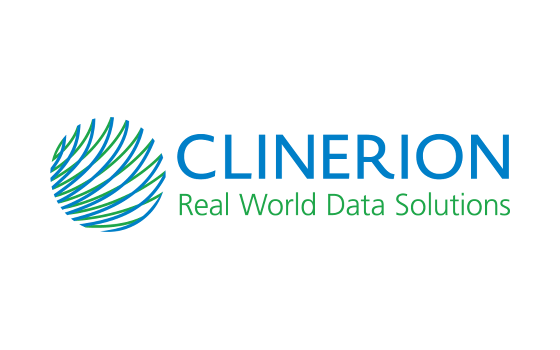 The new Clinerion patent underpins any medical EHR database infrastructure that incorporates a hybrid model of cloud-and-local server node installations at individual hospitals, as well as any method for search of patient cohort care metrics across such a platform. This allows real-time search at each individual hospital across the entire network at once, returning aggregate metrics from the entire network. This technology forms the basis of Clinerion's Patient Network Explorer.
The new Clinerion patent underpins any medical EHR database infrastructure that incorporates a hybrid model of cloud-and-local server node installations at individual hospitals, as well as any method for search of patient cohort care metrics across such a platform. This allows real-time search at each individual hospital across the entire network at once, returning aggregate metrics from the entire network. This technology forms the basis of Clinerion's Patient Network Explorer.
System: The patent covers a federated network connecting separate healthcare databases with patient records extracted from hospital information systems. Records containing patient treatment metrics such as diagnoses, medications, treatments, procedures, lab results and vital signs, can be searched disparately to return aggregate cohort results per database. In particular, the patent details the set-up of local hospital servers and de-identification modules that transfer local data into anonymized data servers within the hospital environment, separated from identifiable personal data by a firewall.
Method: The patent includes a methodology for selection and identification of de-identified subjects for clinical study, thereby accelerating cohort search and reducing costs. The patent's claims include all cases where a patient cohort is selected based on inclusion/exclusion criteria applied to electronic health records (EHRs) at partner hospitals.
The patent builds in data protection, as it incorporates restrictions to data transfer from the local server to outbound connections, while having no inbound ports, thereby preventing hacking of the local server. The patent also describes a firewall, encryption, and/or additional protective components, as well as the use of an anonymization module on patient data before a request may be initiated. The patent further introduces a reverse identification process crucial to clinical research outreach processes, such as patient engagement. Note that ANID, Clinerion’s state-of-the-art technology for unlinked de-identification of patient records, as well as a process for re-identification, is described in a follow-up patent.
In the instance of Clinerion’s Patient Network Explorer, real-time patient searches are enabled across disparate hospital sites, countries, and languages. De-identified EHRs at the partner hospitals may be queried from the Clinerion cloud, returning a cohort count of relevant patients fitting the inclusion/exclusion criteria. This allows:
- Identification of the patient cohort, as well as extended usages, such as cohort modeling and cohort feasibility, outcomes analysis and chart review feasibility,
- Analyses of patient reported outcomes, retrospective studies, or any other real-world evidence generation,
- Diagnostic outreach, fast patient outreach for patient reported outcomes, recruitment to clinical trials based on real-time EHR updates, and secure re-identification routines, and
- Real-time data metrics across all partner hospitals.
"This patent is the culmination of development work going back many years," says Dr. Andreas Walter, Clinerion Chief Technology Officer. "Our original aim was to provide huge efficiency savings in patient search for clinical trial recruitment, an area which famously requires high costs and time, using cutting-edge Big Data analytics technologies. We are pleased that the results, in the form of Patient Network Explorer, and all its attending services, now offer real benefits throughout the research timeline."
"Clinerion's proprietary technology has always been a solid cornerstone to our business," says Dr. Barış Erdoğan, Clinerion Chief Executive Officer. "The publication of this patent brings our intellectual property strongly into the light. Having spent many years in healthcare data analytics, we are committed to be a pioneer in the field by bringing in secure, scalable, and trustworthy solutions with the sole aim of creating better patient outcomes."
"This patent represents the foundation of our venture to solve the hardest problem of simplifying access to real-world data," says Ulf Claesson, Clinerion Board Member. "How to not only create homogenous views across different geographies, languages, regulations, and coding standards, but also to guarantee full patient privacy. And now we do that across 26 countries around the globe."
The patent, EP 2015/059415, "PATIENT RECRUITMENT SYSTEM AND PATIENT RECRUITMENT METHOD," was published in the European Patent Bulletin 2021/30 on July 28th, 2021. The patent was submitted on March 30th, 2014. The related US patent is expected to be published soon.
About Clinerion
Clinerion accelerates clinical research and medical access to treatments for patients. We generate real-world data from our global network of partner hospitals for Real World Evidence analyses. Clinerion's Patient Network Explorer radically improves the efficiency and effectiveness of clinical trial recruitment by offering data-driven protocol optimization, site feasibility evaluation and real-time patient search and identification to match patients to treatments.Clinerion facilitates the participation of partner hospitals in leading-edge, industry-sponsored trials and time savings in patient recruitment. Researchers gain access to real-time, longitudinal patient data from electronic health records for analysis. We enable pharmaceutical companies, CROs and SMOs to shorten patient recruitment and save costs by streamlining operations and leveraging strategic intelligence. Clinerion's Patient Network Explorer also provides a platform for integration of diverse patient data sources into real-world data ecosystems. Clinerion’s proprietary technologies comply with international patient privacy and data security regulations. Clinerion is a global data technology service company headquartered in Switzerland.